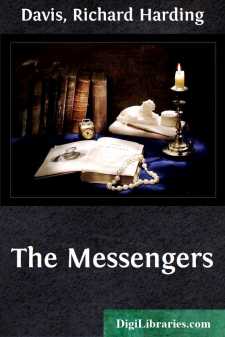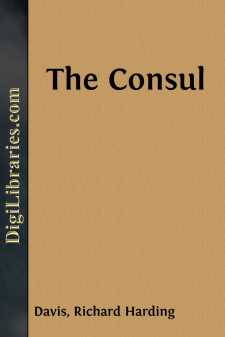Categories
- Antiques & Collectibles 13
- Architecture 36
- Art 48
- Bibles 22
- Biography & Autobiography 815
- Body, Mind & Spirit 144
- Business & Economics 28
- Children's Books 18
- Children's Fiction 14
- Computers 4
- Cooking 94
- Crafts & Hobbies 4
- Drama 346
- Education 58
- Family & Relationships 59
- Fiction 11834
- Games 19
- Gardening 17
- Health & Fitness 34
- History 1378
- House & Home 1
- Humor 147
- Juvenile Fiction 1873
- Juvenile Nonfiction 202
- Language Arts & Disciplines 89
- Law 16
- Literary Collections 686
- Literary Criticism 179
- Mathematics 13
- Medical 41
- Music 40
- Nature 179
- Non-Classifiable 1768
- Performing Arts 7
- Periodicals 1453
- Philosophy 65
- Photography 2
- Poetry 896
- Political Science 203
- Psychology 44
- Reference 154
- Religion 515
- Science 126
- Self-Help 85
- Social Science 82
- Sports & Recreation 34
- Study Aids 3
- Technology & Engineering 59
- Transportation 23
- Travel 463
- True Crime 29
Our website is made possible by displaying online advertisements to our visitors.
Please consider supporting us by disabling your ad blocker.
Billy and the Big Stick
Description:
Excerpt
Had the Wilmot Electric Light people remained content only to make light, had they not, as a by-product, attempted to make money, they need not have left Hayti.
When they flooded with radiance the unpaved streets of Port-au-Prince no one, except the police, who complained that the lights kept them awake, made objection; but when for this illumination the Wilmot Company demanded payment, every one up to President Hamilear Poussevain was surprised and grieved. So grieved was President Ham, as he was lovingly designated, that he withdrew the Wilmot concession, surrounded the power-house with his barefooted army, and in a proclamation announced that for the future the furnishing of electric light would be a monopoly of the government.
In Hayti, as soon as it begins to make money, any industry, native or foreign, becomes a monopoly of the government. The thing works automatically. It is what in Hayti is understood as haute finance. The Wilmot people should have known that. Because they did not know that, they stood to lose what they had sunk in the electric-light plant, and after their departure to New York, which departure was accelerated as far as the wharf by seven generals and twelve privates, they proceeded to lose more money on lobbyists and lawyers who claimed to understand international law; even the law of Hayti. And lawyers who understand that are high-priced.
The only employee of the Wilmot force who was not escorted to the wharf under guard was Billy Barlow. He escaped the honor because he was superintendent of the power-house, and President Ham believed that without him the lightning would not strike. Accordingly by an executive order Billy became an employee of the government. With this arrangement the Wilmot people were much pleased. For they trusted Billy, and they knew while in the courts they were righting to regain their property, he would see no harm came to it.
Billy's title was Directeur General et Inspecteur Municipal de Luminaire Electrique, which is some title, and his salary was fifty dollars a week. In spite of Billy's color President Ham always treated his only white official with courtesy and gave him his full title. About giving him his full salary he was less particular. This neglect greatly annoyed Billy. He came of sturdy New England stock and possessed that New England conscience which makes the owner a torment to himself, and to every one else a nuisance. Like all the other Barlows of Barnstable on Cape Cod, Billy had worked for his every penny. He was no shirker. From the first day that he carried a pair of pliers in the leg pocket of his overalls, and in a sixty-knot gale stretched wires between ice-capped tele graph poles, he had more than earned his wages. Never, whether on time or at piece-work, had he by a slovenly job, or by beating the whistle, robbed his employer. And for his honest toil he was determined to be as honestly paid—even by President Hamilcar Poussevain. And President Ham never paid anybody; neither the Armenian street peddlers, in whose sweets he delighted, nor the Bethlehem Steel Company, nor the house of Rothschild.
Why he paid Billy even the small sums that from time to time Billy wrung from the president's strong box the foreign colony were at a loss to explain....












